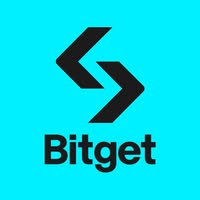In the world of cryptocurrency trading, choosing the right platform is crucial for successful investing and trading. Among the leading exchanges, Bitget and Binance are two names that frequently come up. Both platforms offer various features that appeal to both beginners and experienced traders, but how do they compare when it comes to performance, fees, security, and user experience? In this blog post, we’ll take a closer look at these two platforms and explore which one stands out in the world of crypto trading.
Overview of Bitget
Bitget is a relatively newer player in the cryptocurrency trading world but has quickly gained a significant following. Established in 2018, it started with a focus on providing derivatives trading, particularly futures contracts, for users interested in leveraging their crypto positions. Over the years, Bitget has expanded its offering, allowing spot trading, staking, and even a social trading feature, where users can copy the trades of more experienced traders.
The platform’s key strength lies in its advanced trading tools and leverage options, which cater to both professional and novice traders. Bitget has built its reputation on offering a smooth user experience with a simple interface, but with powerful tools for users who want to engage in more complex strategies. It also offers a range of cryptocurrencies to trade, with the ability to manage risk through margin trading and other derivatives.
Overview of Binance
Binance, on the other hand, is one of the largest and most well-known cryptocurrency exchanges in the world. Launched in 2017, it has since become a global leader in crypto trading, providing users with a comprehensive suite of services that range from spot trading to futures, staking, and even NFTs. Binance’s primary attraction lies in its vast array of cryptocurrencies and its high liquidity, making it an attractive platform for traders looking to diversify their portfolios.
In addition to its standard trading offerings, Binance has become synonymous with innovation in the crypto space. The platform constantly updates its features to keep up with market demands, including the introduction of its own blockchain, Binance Smart Chain (BSC), and its utility token, Binance Coin (BNB). Binance also offers a robust mobile app and an intuitive web interface, catering to both beginner and advanced traders alike.
Key Features and Tools: Which One Offers More?
Both Bitget and Binance offer essential trading tools like spot and futures markets, margin trading, and staking, but there are notable differences in their features.
Bitget is best known for its social trading feature, which allows users to follow and copy the trades of seasoned professionals. This feature is beneficial for new traders who want to learn from experts without actively managing their trades. Bitget also provides high leverage on its futures market, allowing users to amplify their trades, though this comes with added risk.
In contrast, Binance offers a broader range of services, including its own DeFi platform, Binance Smart Chain, and staking options across a variety of cryptocurrencies. Binance also stands out with its Binance Launchpad, where users can participate in Initial Exchange Offerings (IEOs) and gain access to new crypto projects. Additionally, Binance’s security features, including two-factor authentication (2FA) and cold storage options, are among the most robust in the industry.
While both platforms cater to advanced traders, Binance arguably offers a wider range of tools for users looking to expand their crypto portfolio. Whether it’s through innovative DeFi solutions, margin trading, or NFTs, Binance is a powerhouse for those seeking variety and comprehensive trading solutions.
Fees: Which Platform Is More Cost-Effective?
When it comes to fees, both platforms offer competitive rates, but there are some key differences. Bitget offers a relatively straightforward fee structure for both spot and futures trading. Spot trading fees are around 0.1%, while futures trading fees vary depending on the contract and leverage used. Bitget also rewards users with lower fees if they hold the platform’s native token, BGB, which can help reduce trading costs.
Binance, however, offers a more complex fee structure with discounts based on trading volume and the use of its native token, BNB. For spot trading, the fees start at 0.1% for both makers and takers, but users can receive significant discounts if they use BNB to pay for fees or if they achieve high trading volumes. Binance’s futures fees are also competitive, and the platform offers various incentive programs to encourage trading.
While both exchanges are relatively low-cost, Binance may have the edge in terms of fee flexibility, especially for users who actively trade and can take advantage of discounts through BNB or high-volume trading.
Security and Customer Support: Trust and Reliability
Security is paramount in the world of cryptocurrency trading, and both Bitget and Binance have established themselves as secure platforms. Binance is known for its comprehensive security measures, including cold storage for a significant portion of its assets, 2FA, and regular security audits. Binance also offers a Secure Asset Fund for Users (SAFU), a safety net designed to protect users in the event of a security breach.
Bitget also prioritizes security with advanced encryption protocols and two-factor authentication for account protection. The platform has a clean track record with no major breaches, and its partnership with top-tier custodians ensures the safety of user assets.
When it comes to customer support, both platforms offer 24/7 assistance through live chat, email, and community channels. Binance’s larger scale means it has a more extensive support network, but Bitget is known for its responsive customer service, especially for users engaged in social trading.
Conclusion: Which Platform Should You Choose?
When comparing Bitget and Binance, the decision ultimately depends on your specific trading needs. If you are looking for an exchange with a broad range of features and the ability to explore different crypto products, Binance is the clear winner. It’s a highly versatile platform with low fees, comprehensive tools, and a vast selection of cryptocurrencies.
However, if you are new to trading or prefer the simplicity of copying professional traders’ strategies, Bitget may be a better choice. Its social trading features and leverage options cater to beginner and intermediate traders, making it an ideal starting point for those seeking to learn and grow in the crypto market.
Both exchanges have their strengths, but your choice will depend on your experience level, trading preferences, and security needs. Ultimately, the right platform is the one that fits your unique trading style and goals.

Jamie Redman is the News Lead at Bitcoin.com News and a financial tech journalist living in Florida. Redman has been an active member of the cryptocurrency community since 2011. He has a passion for Bitcoin, open-source code, and decentralized applications. Since September 2015, Redman has written more than 10,000+ articles for Bitcoin.com News about the disruptive protocols emerging today.